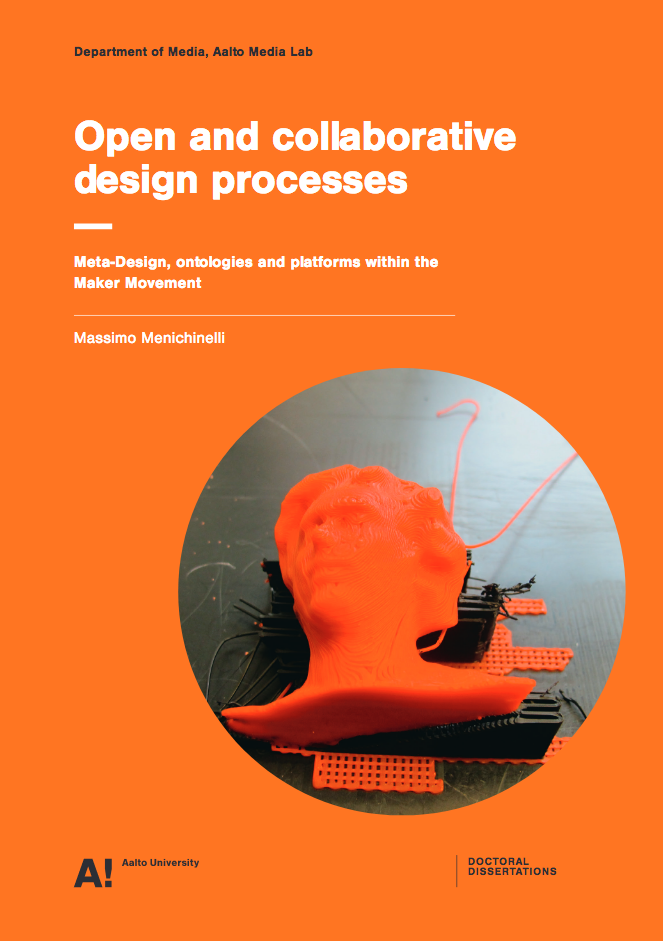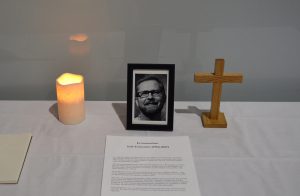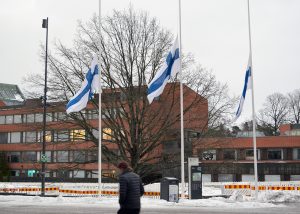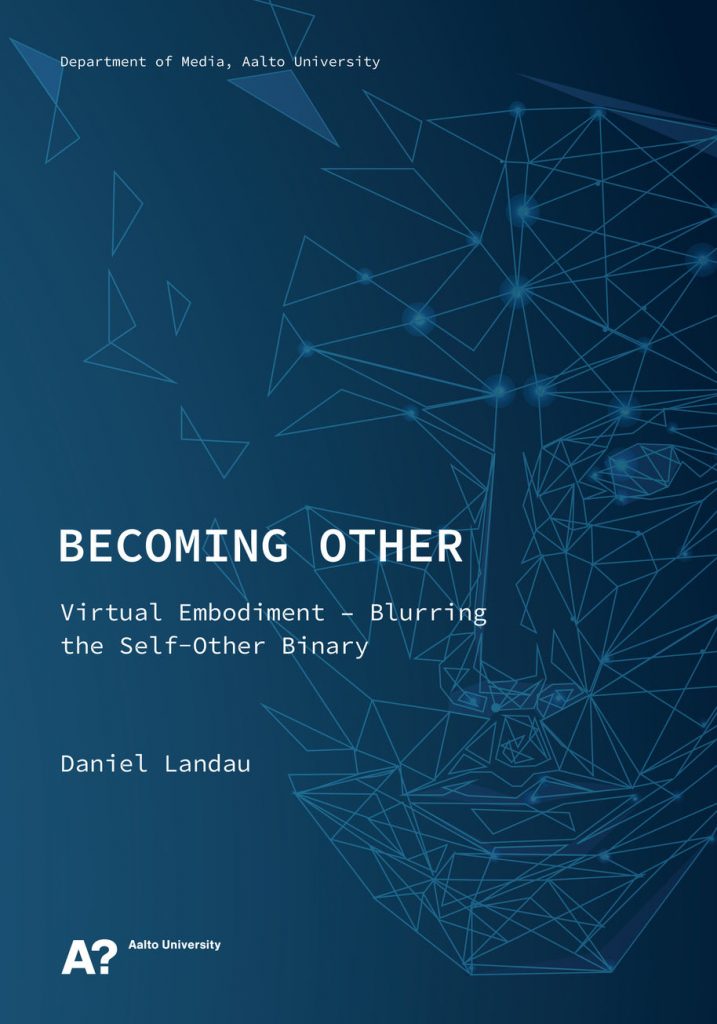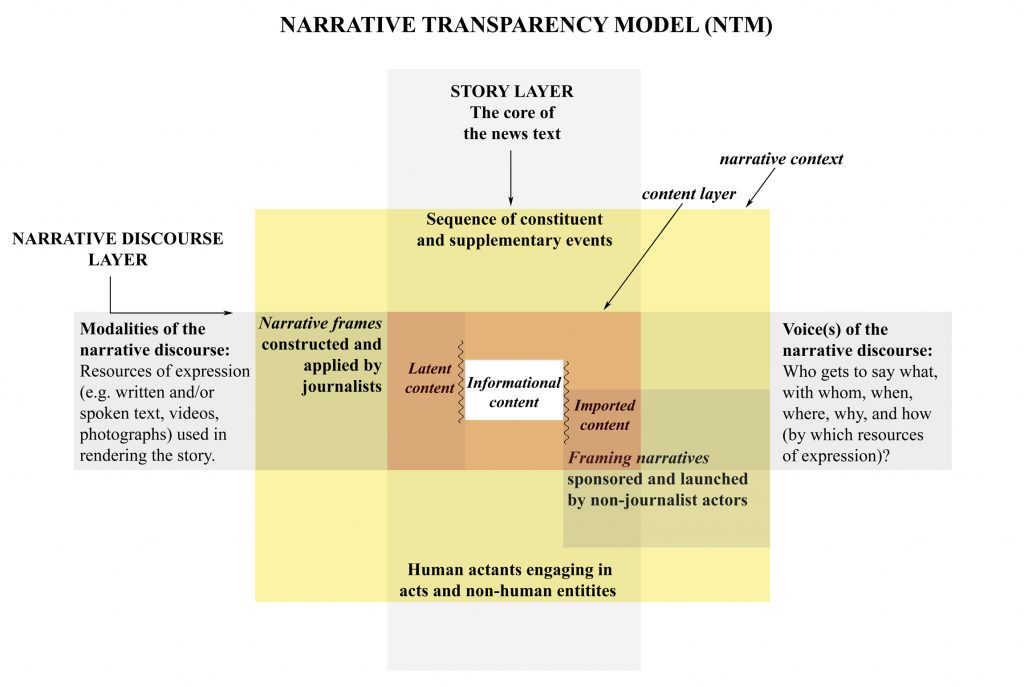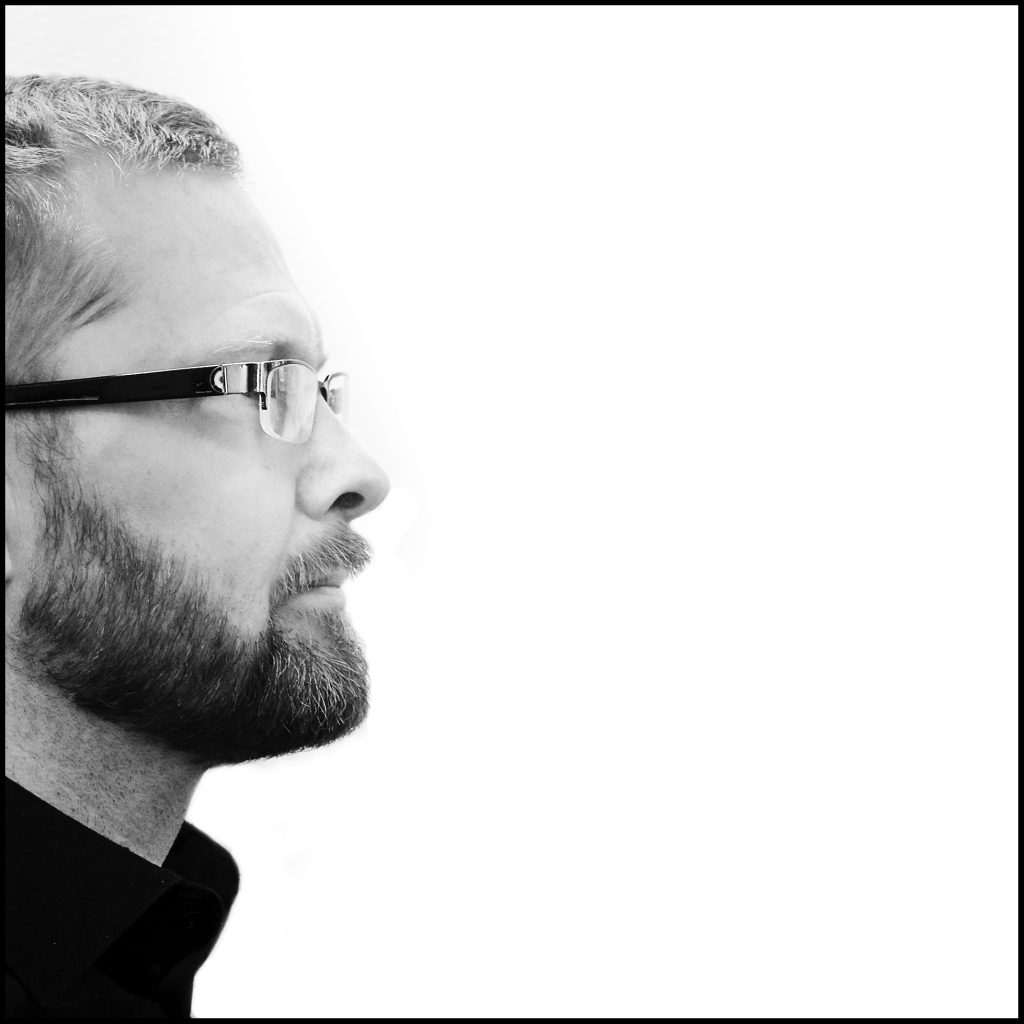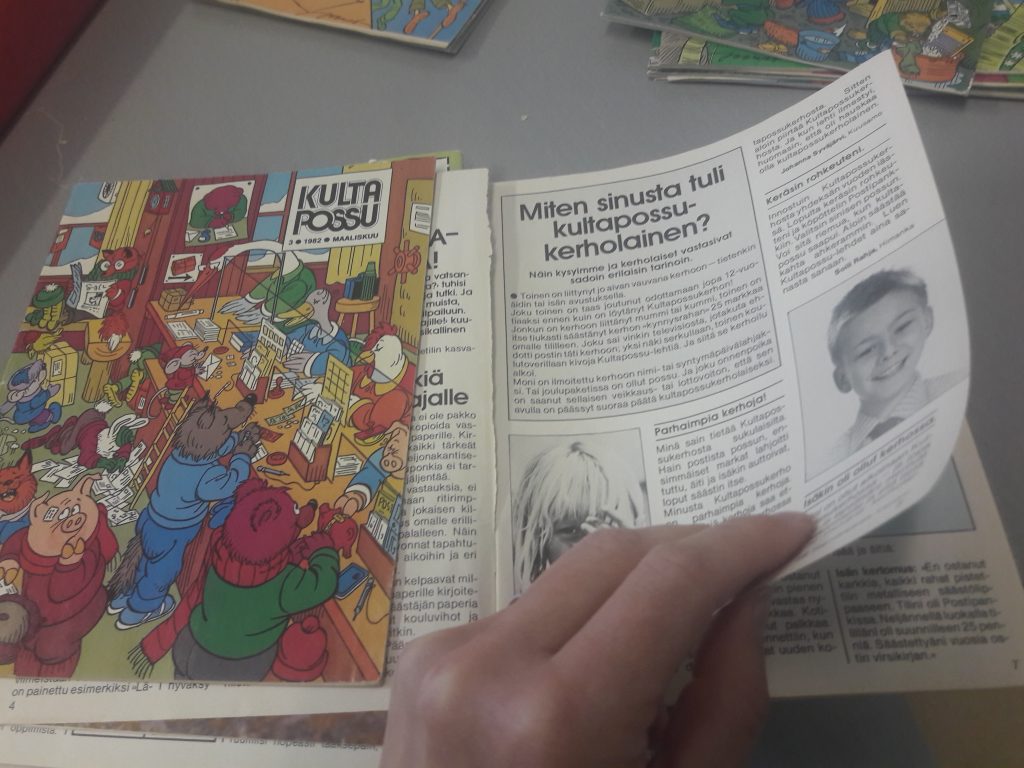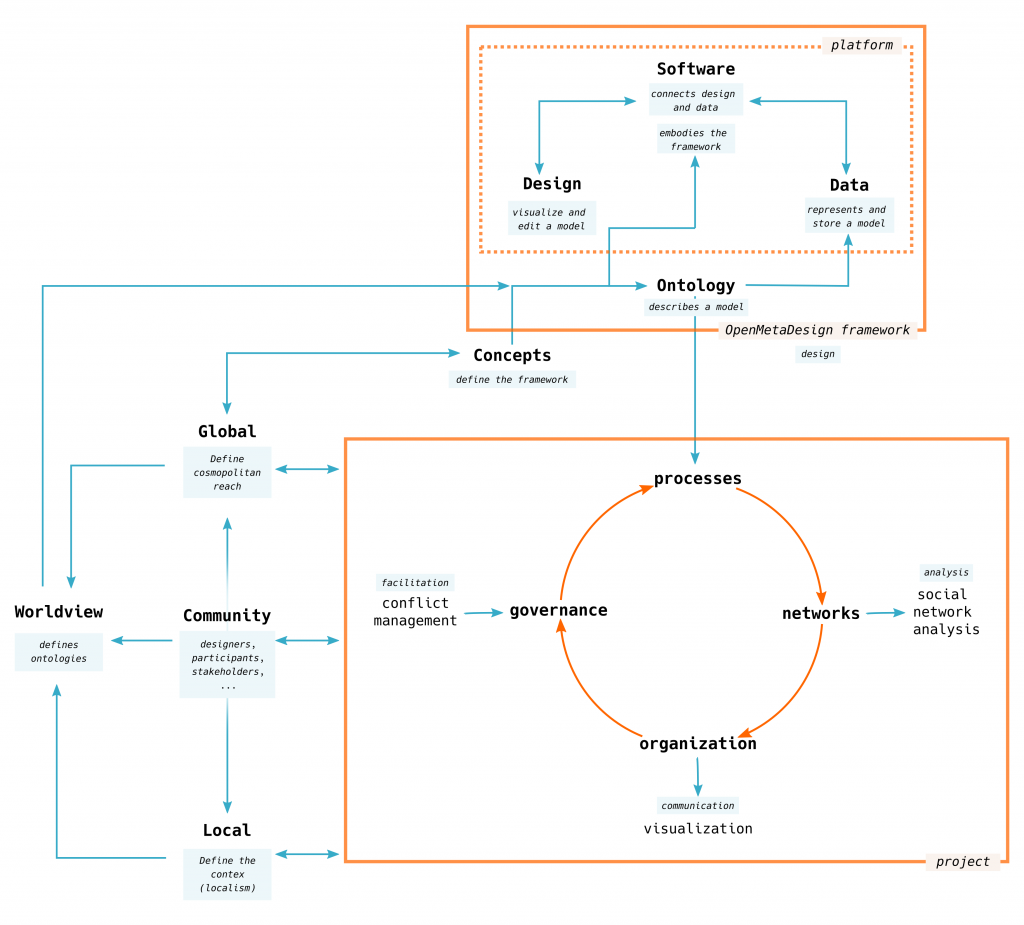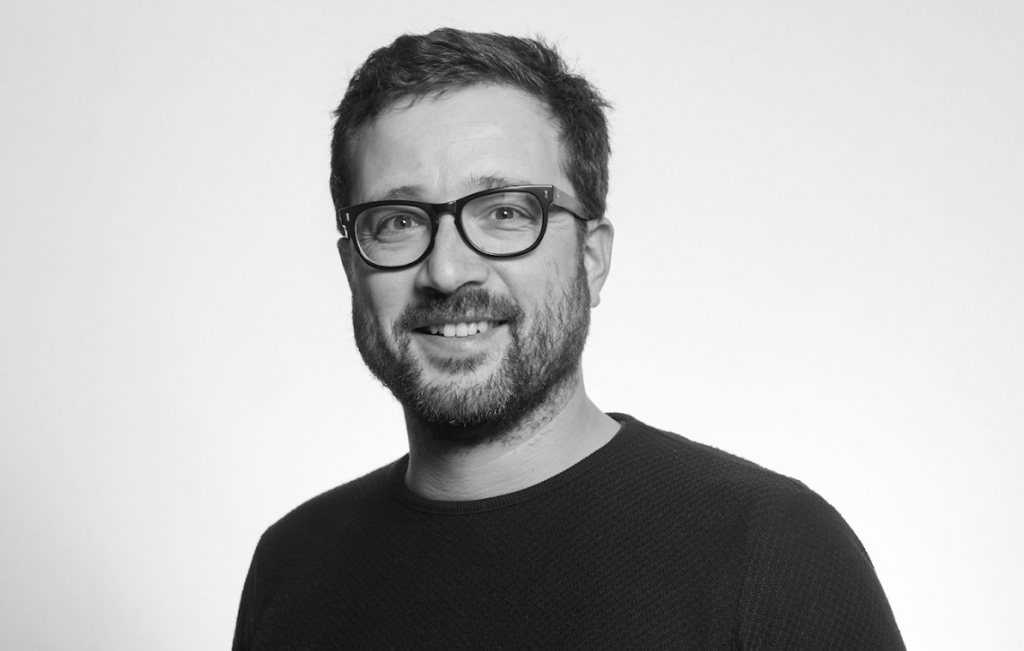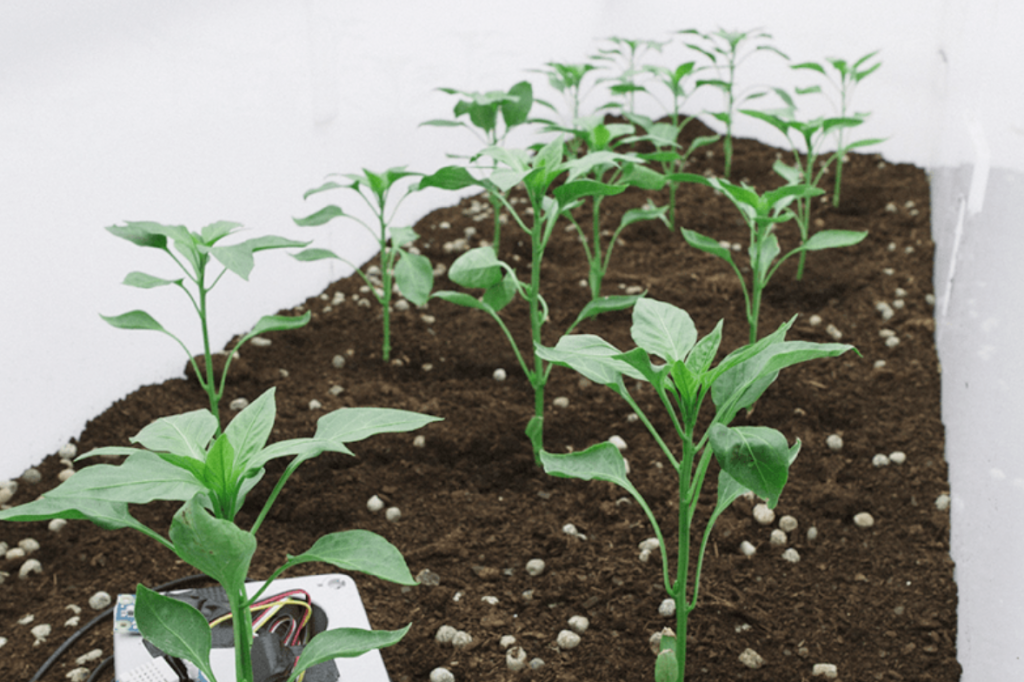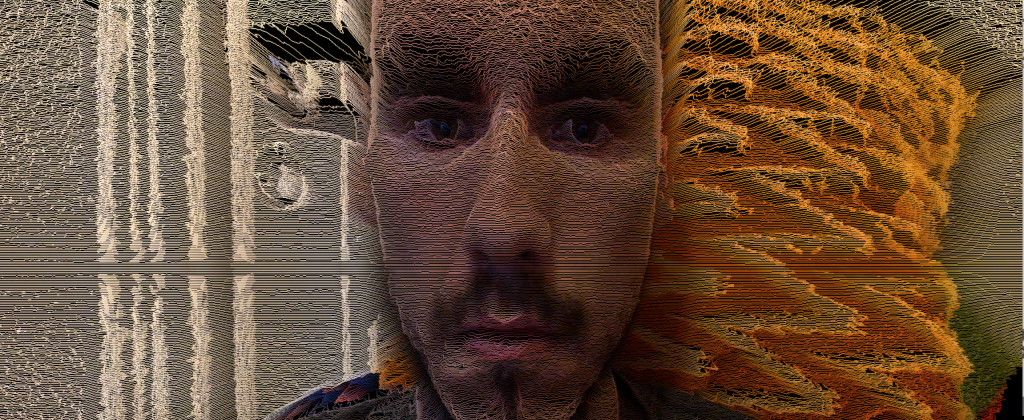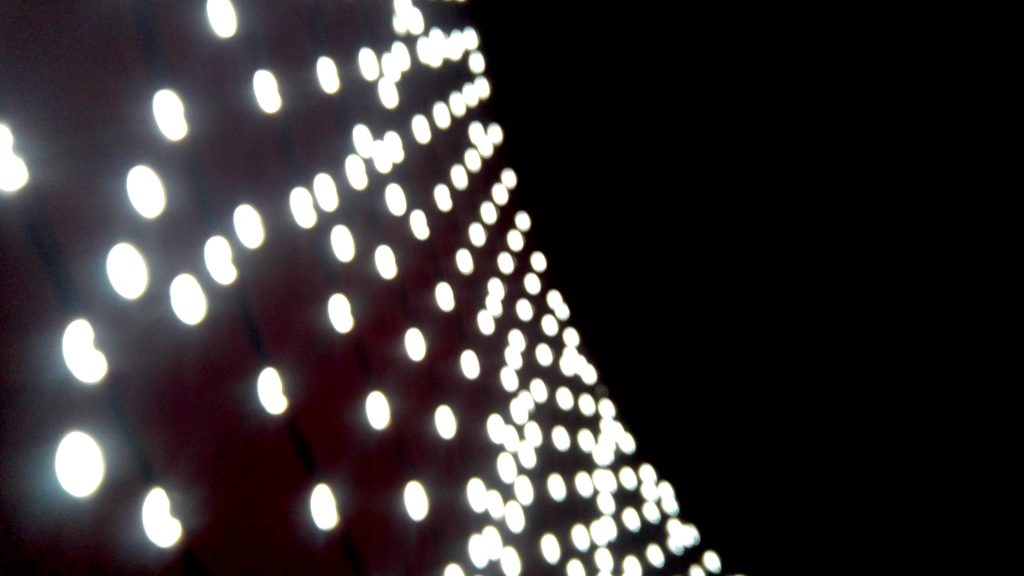New Media / Doctoral Seminar (DOM-L0007)
Welcome to the second New Media Doctoral Seminar of the semester.
Presentations are open to everyone!
Join us in Zoom:
Thursday // 15.10.2020 // 16:30-19:30
https://aalto.zoom.us/j/68065435302
Mediated by Professor Lily Diaz-Kommonen we will have two fascinating presentations + Q&A discussion after the presentations.
Presentations by:
Andrew Gryf Paterson(Doctoral Candidate / Aalto University / Department of Media / School of Arts, Design and Architecture)
Vytautas Michelkevičius(Curator, researcher and associate professor. Head of Photography and Media Art Department and Doctoral Programme in Fine Arts in Vilnius Academy of Arts)
________________________________________________________________________________________________
Andrew Gryf Paterson (Doctoral Candidate / Aalto University / Department of Media / School of Arts, Design and Architecture)
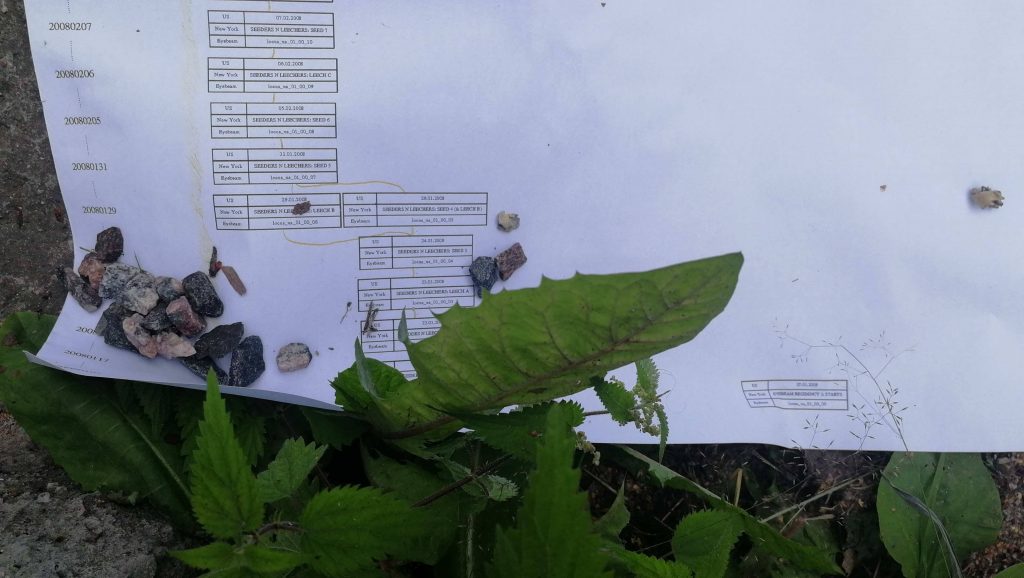
Autoarchaeologies / of an artist-organiser
(doing fieldwork) in Finland and Latvia.
Abstract
As we live our lives in environments which are increasingly digitised—pervasively recorded in databases and archival systems, with each social exchange and encounter—the more concerns exist about personal data, metadata, and the digital shadow or footprint that we leave behind in our mobilities using mobile devices. How to make sense of and re-present activities and experiences— that have happened as open-ended events and processes in multiple contexts—over time? How do seemingly disparate activities or agencies relate to each other? How do past, present and future practices relate to each other in timelines? What do gaps reveal within our personal data archaeological record, and the stories we make? How does linear-temporal objectification of lived experience and work relate to non-linear foldings and relationships of what I—and we—organise, research, create, make and do?
This article-based doctoral dissertation develops a particular practice-based methodology, named here as autoarchaeologies, to reflect upon the author’s ‘artist-organiser’ practice over an extended durational period of 2002-2020, mostly in Finland and Latvia, with particular focus on the later decade. There are 5 roles of ‘Artist as’.. -organiser, -researcher, -archivist, -archaeologist and -activist which are presented as interweaving into a hybrid arts method. Each of these roles are elaborated with reference to practice-based inspiration or literature. The author presents themselves as a researcher with an autoethnographic ‘artistic fieldwork’ approach to reflecting and contextualising hybrid arts in the social process and environment of its development, which includes media arts festivals & network culture scenes in North-East Europe. However, innovatively, the methodological perspective is to combine perspectives and data-recording methods from traditional and contemporary archaeologies ‘of the recent contemporary past’, which address the data records we are leaving in databases as we live, work, and travel in the contemporary world.
Early inspiration in the research process extended earlier augmented reality research using stratigraphy as an authoring metaphor, which then morphed into explorations of metadata and context with the emerging mobile media interfaces and concepts, such as locative media, in the early-mid 2000s. Participatory arts, design and online platforms have influenced a non-mediated, post-media perspective, and led towards a mix of meta-data coding, printing and mapping large-scale diagrams of the author’s Curriculum vitae. Additional hand-drawn lines were added with the imagination of recovering a literally-personal touch to the mass of objectified and abstract data (2011a).
Each of the 4 single-author case articles (2011b, 2013a, 2016, 2020) offer a different way to reflect and narrate the process that the author has been involved in over shorter or longer time periods. Each have their own loci, context, and stories, but are heterogeneous to each other, which—with the exception of author centred in narrative each in reflection—need their own meta-narrative. Hence, the ambition of the stratigraphs. However, as the thesis comes to it’s conclusion, there are still subjectivities and externalities that typically are left out from the narrative. It is this very personal data and perspective which the author tries to face up to at the end of the process as an outcome, to move onwards, still outgoing.
In the context of increased meta-data-augmented documentation of practices and everyday life, via ubiquitous mobile computing and online publishing platforms, there is arguably an increasing amount of personal (small or big) data to interpret and analysis. Critical activist-scholars are increasingly concerned with the age of surveillance capitalism, data-(self-)colonisation. As a contribution to this field, this thesis chimes with the multitudes of data available about our own and others past activities, and the need to develop interpretative tools independent of corporate online platforms. It argues alongside prominent contemporary archaeological theorists that we can all (potentially) be archaeologists and narrators of our own personal data. This author joins the argument that we urgently need ways to take back control of our personal data on our own terms, and find ways to de-colonise ourself from platform capitalism. It offers a slow research, long-overview and personal approach, via practice-based research, of self-determination in how we can tell about our past, but also the potential freedom to share our lives in present and future societies.
Articles included within thesis
#1 Paterson, A. G. (2011a). Stratigraphical recall: An auto-archaeological interpretation for artistic fieldwork, In Lily Diaz (ed.), Special issue of Journal of Visual Arts Practices, Vol. 10 # 1, ISSN 1470-2029. Bristol: Intellect Ltd. https://doi.org/10.1386/jvap.10.1.51_1
#2 Paterson, A. G. (2020). ‘Kitchen labs: Spilling one’s guts / Deep fry together’. Accepted September 2020 as full paper to ‘Art of Research’ Symposium, Helsinki, 3-4.12.2020. https://artofresearch2020.aalto.fi/
#3 Paterson, A. G. (2016). Reflections on soil future(s), present(s) and past(s), In Rasa Smite, Armin Medosch, Kerstin Mey, Raitis Smits (eds.), Acoustic Space #15: Open fields, Peer-reviewed Journal for Transdisciplinary Research on Art, Science, Technology and Society, Riga-Liepaja: RIXC-MPLab, 2016. Accessible from: https://archive.org/details/agryfp-2015-soil-presents-pasts-futures
#4 Paterson, A. G. (2013a). Mountain crowberries: Foraging and measuring knowledge or experience, In Laura Beloff, Erich Berger & Terike Haapoja (eds.), Field_Notes: Field and Laboratory as Sites for Art&Science Practices , Helsinki: Finnish Bioart Society, 2013. Accessible from: http://bioartsociety.fi/book/Field_Notes-From_Landscape_To_Laboratory-2013.pdf
#5 Paterson, A. G. (2011b). From a pull-down screen, fold-up chairs, a laptop and a projector: The development of Clip Kino screenings, workshops and roles in Finland, In Geert Lovink & Rachel Somers Miles (eds.), Video Vortex Reader II: Moving images beyond YouTube, Amsterdam: Institute of Network Cultures, 2011. p.81-94. Accessible from: http://networkcultures.org/videovortex/vv-reader/
Additional Reference links
• Presentation in the ‘Creative Disruption in Archaeological Theory and Practice’ track within 2018 Computer Applications and Quantitative Methods in Archaeology (CAA) international conference, 19-23.3.2018, at University of Tübingen, Germany. ‘Towards Autarchaeological Archiving’ [EN]: https://archive.org/details/agryfp-2018-towards-autoarchaeological-archiving
• Presentation at National Centre for Contemporary Arts (NCCA) Kaliningrad, Russia, with title ‘Artistic Fieldwork in Finland and Latvia’ [EN/RU]: https://archive.org/details/agryfp-2013-artistic-fieldwork-in-finland-latvia-ncca-kaliningrad
Bio
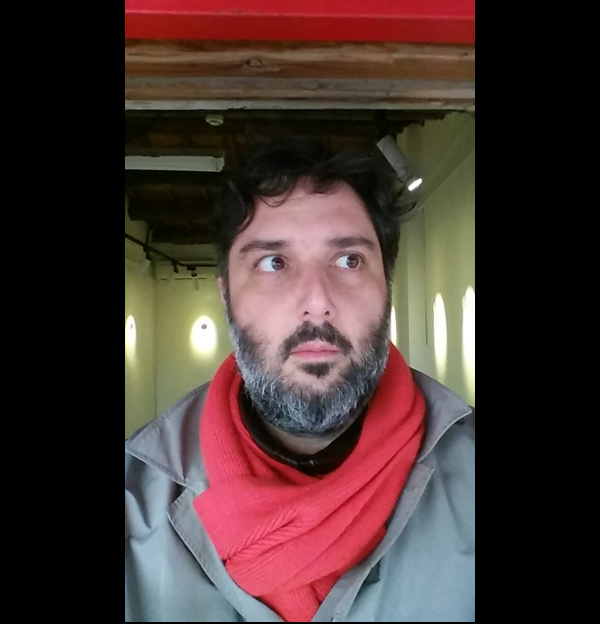
‘Artist-organiser’, cultural producer, educator and independent researcher. Specialises in developing and leading inter- and trans- disciplinary projects exploring connections between art, digital culture and science, cultural activism, ecological and sustainability movements, cultural heritage and collaborative networks. Originally from Scotland, Andrew has been most active in the past decades in Helsinki, Finland, aswell as Latvia and the Baltic Sea region, in particular. He works across the fields of media/ network/ environmental arts and activism, pursuing a participatory practice through workshops, performative events, & storytelling.
His main involvement of recent years has been with memembers of Pixelache Helsinki node of Pixelache Network. From early 2011 until end of 2014, he was coordinator and facilitator of the ‘Pixelversity’ around-the-year informal educational programme for Pixelache [http://pixelache.ac]. Within Pixelache context, he was most recently involved in the collaborative work-group project ‘Ferment Lab’ (2015-2018) and BioSignals (2018-2020). Over the longer period since 2003, his experience, reflections and findings have been written as articles in various international cultural publications, journals, presented in inter and trans-disciplinary festivals.
He is currently completing a long-term Doctor of Arts candidacy at Aalto University School of Art and Design, Media Department, with working thesis titled “Autoarchaeologies”. Paterson already holds a multi-disciplinary education, with a BA(Hons) Fine Arts degree from Glasgow School of Art (1997), and a MSc degree in Computer-Aided Graphical Technology Applications from University of Teesside (2001).
Download abstract, table of contents & bibliography
________________________________________________________________________________________________
Vytautas Michelkevičius (Curator, researcher and associate professor. Head of Photography and Media Art Department and Doctoral Programme in Fine Arts in Vilnius Academy of Arts)
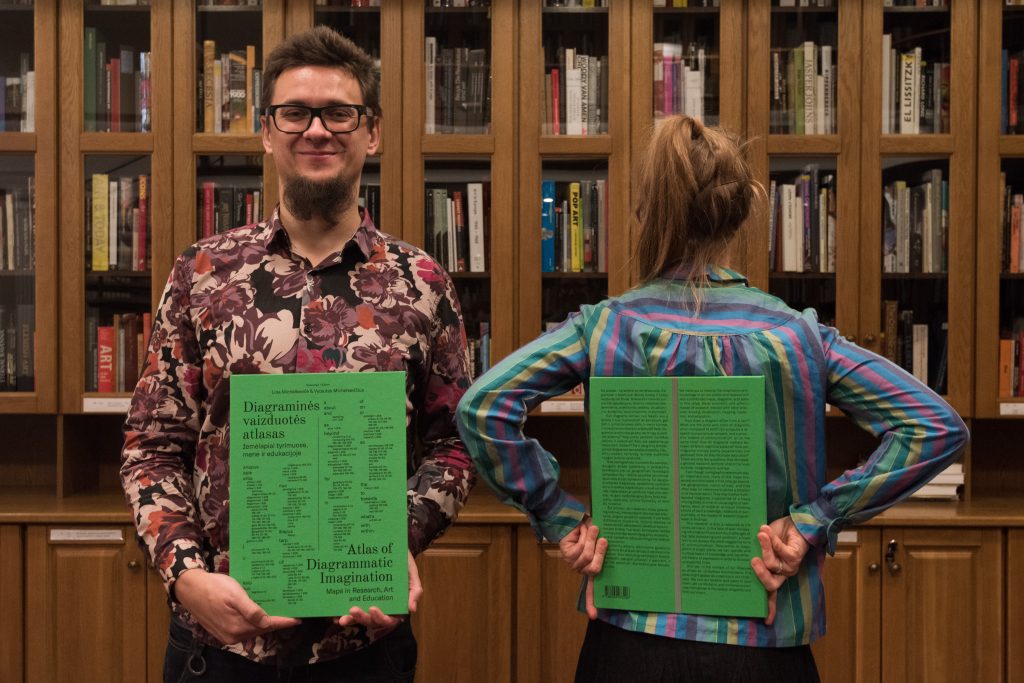
“Atlas of Diagrammatic Imagination” (2019): How Can Maps Transfer Knowledge in Artistic Research”
Abstract
How does a diagram differ from a text? What are the pros and cons of diagrams when compared to text? Can a map be a research component, an artwork, and a scientific means of communication, all at the same time? How do diagrams mediate between different cognitive systems? How can diagrams convey bodily experiences and gestures? How do they facilitate education? These are only few questions that delineate a general research territory where the book authors’ imaginations overlap.
Even though cartographic references play an important role, many of the maps presented and discussed in this atlas go beyond the geographical notion of map, and they often bear no reference to either a location or its representation. They may involve multilayered diagrams, trajectories of a freely moving body or a hand, visual signs of hesitancy, tools of material or visual thinking, charts of tacit knowledge, notations of sensual data, or the models of research hypotheses or findings.
This research is also a response to the times we live in. In the face of ever-increasing information flows and the challenges of big data processing and rendition, a linear text is not always the most suggestive form of communication. Meanwhile in maps, within a single plane, we can operate with multiple layers of knowledge, and use different means of expression in order to discover unexpected links.
And yet, in the context of our lifestyles as driven by ubiquitous touchscreens, this atlas might appear as a capricious act of dissent. We call our readers and users to slow down, get comfortable, and immerse or even lose themselves in the essays, diagrams, and fold-out maps.
“Atlas of Diagrammatic Imagination: Maps in Research, Art and Education”, Lina Michelkevičė & Vytautas Michelkevičius (eds.), Vilnius Academy of Arts Press, 2019
Bio
Dr. Vytautas Michelkevičius (Vilnius, LT) is a curator, writer and researcher whose focus was gradually shifting from photography in expanded field to media art & theory and lately to artistic research in academia and beyond. He is teaching art practice & theory BA, MA and DA/PhD students in Vilnius Academy of Arts and served as artistic director of Nida Art Colony (2010-2019). Since 2019 he is the head of Photography and Media Art Department and Doctoral Programme in Fine Arts in the same academy. He has curated numerous symposiums and exhibitions, among them Lithuanian Pavilion in Venice Biennale. He has edited and authored more than 10 books on art, media and residencies.https://vilnius.academia.edu/VytautasMichelkevicius

